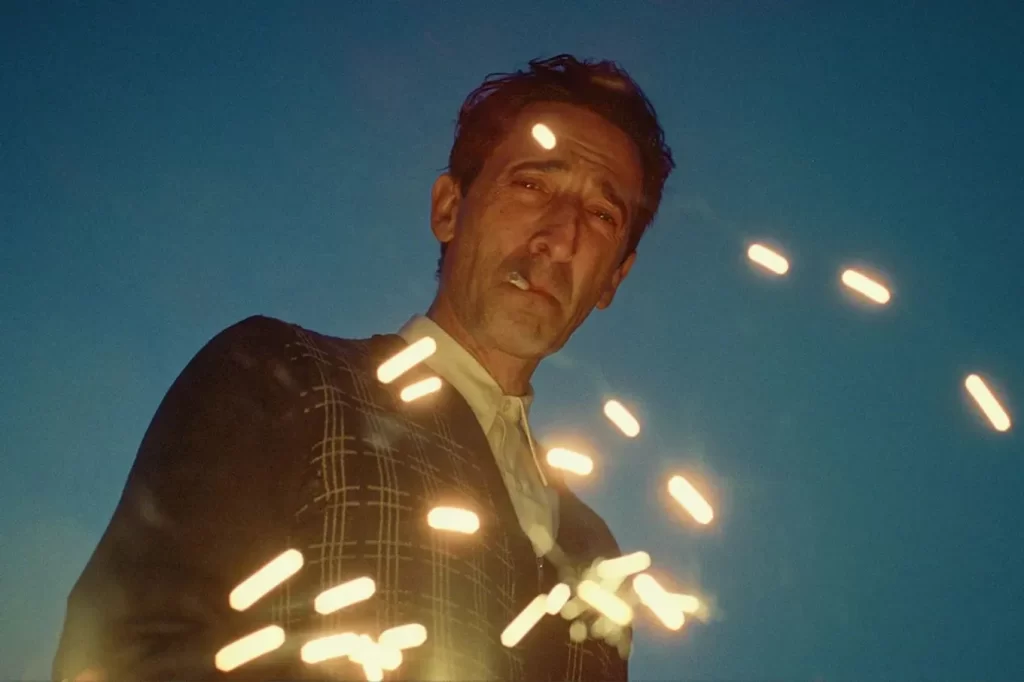
I approached The Brutalist with genuine curiosity and respect. A film centered on an architect—played by the always compelling Adrien Brody—seemed like an invitation into a world of aesthetic discipline, existential inquiry, and visual rigor. Instead, I found myself trapped in a three-hour descent into artistic delusion—an experience so pretentious, so hollow, and ultimately so offensive, it felt less like watching a film than enduring a misguided provocation.
Despite its title, there is nothing Brutalist about The Brutalist. Not in its architecture, not in its structure, not even in its worldview. Brutalism, at its best, is austere and stripped of pretense. This film, by contrast, is indulgent and utterly disconnected from the discipline it pretends to explore. There is no visual homage to Brutalist form, no philosophical engagement with its principles. Instead, architecture becomes a vague backdrop to a series of increasingly disconnected melodramatic episodes, rendered in a style that mistakes slow motion and soft lighting for profundity.
Structurally, the film is a catastrophe. There is no arc to speak of—no rise, no fall, no catharsis. The narrative floats from one vaguely poetic scene to another, each more inert than the last. Characters are introduced without purpose and discarded without consequence. The protagonist’s journey is not a story—it is a slideshow of suffering, punctuated by stylistic flourishes that only underscore how little the filmmakers trust their own material. The pacing is glacial, the transitions jarring, and the final act feels less like a conclusion than a desperate attempt to put the audience out of its misery.
Worst of all is the film’s cynical reliance on graphic sexual imagery; far from revealing character or advancing theme, these scenes are gratuitous to the point of being grotesque. They don’t shock; they repel. Their presence suggests not artistic courage but a desperate bid for controversy, as though the filmmakers feared their hollow narrative would not be taken seriously without a layer of provocation. It’s not art—it’s exhibitionism disguised as profundity.
Adrien Brody, despite his best efforts, is marooned in this cinematic wasteland. His performance is restrained, even dignified, but he is given nothing to work with. His character is barely written, let alone developed. What might have been a compelling study of artistic exile and reinvention is reduced to a limp procession of mournful stares and whispered monologues.
What’s most disheartening is the film’s critical reception. Its presence at major festivals and its nomination for top awards are not signs of artistic triumph, but symptoms of a culture industry that now confuses aesthetic stagnation for seriousness. The Brutalist is not a bold or challenging work—it is a vacuous spectacle dressed in arthouse drag. It stands not as an achievement of cinema but as a warning: that even in an era oversaturated with content, style without substance can still be mistaken for meaning.
To see this celebrated is not just disappointing—it is a damning indictment of how far critical standards have fallen. The film industry has not just lost its way; it has lost its sense of purpose. The Brutalist is not the future of cinema. It is a mausoleum.
